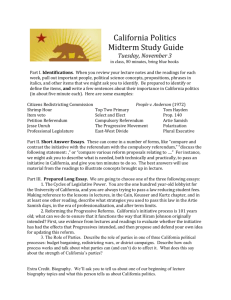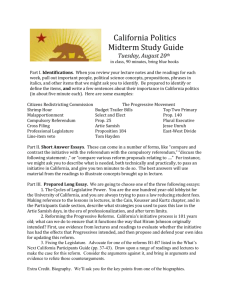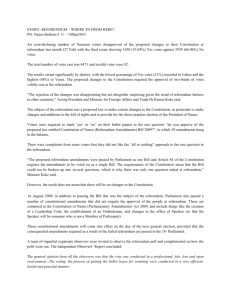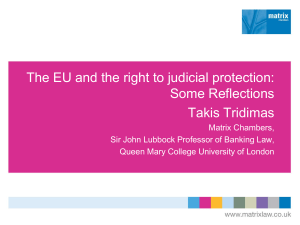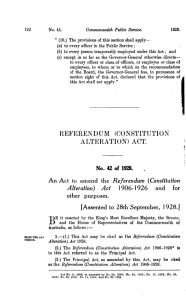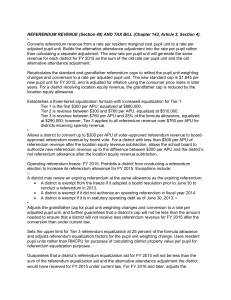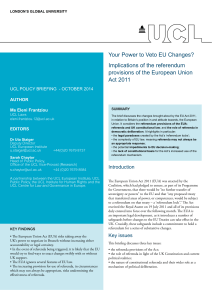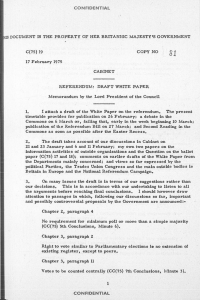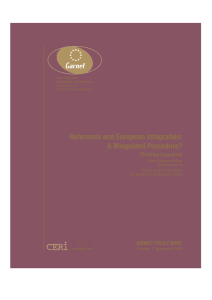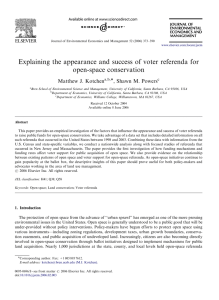Referendum on Raising Property Tax for Library Purposes
advertisement
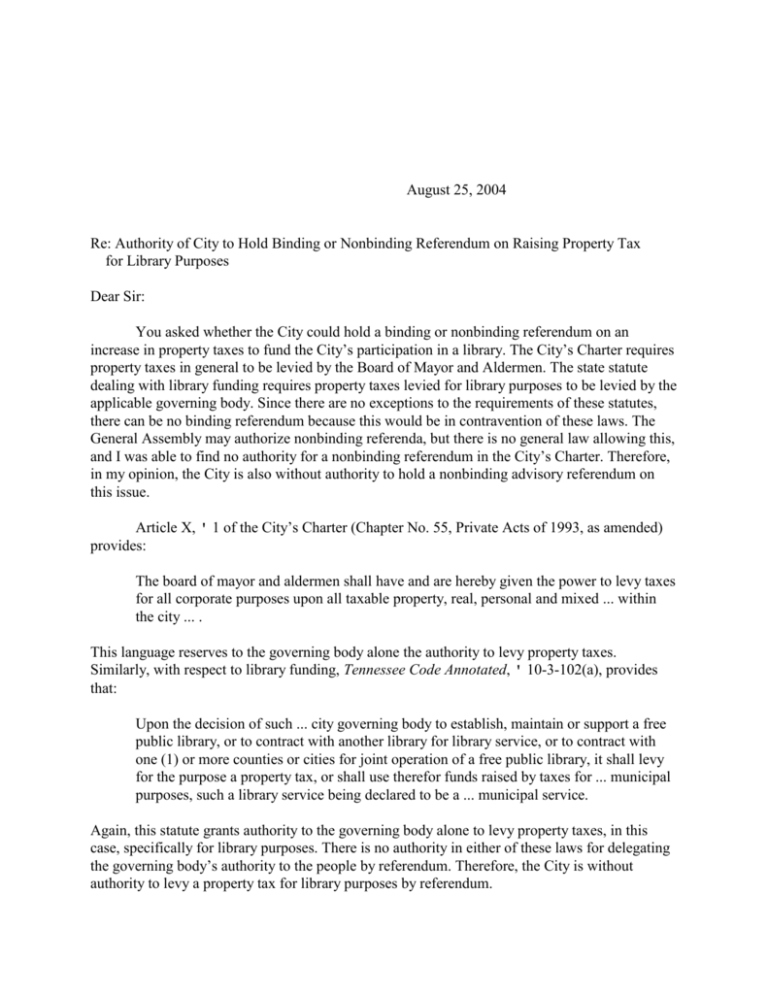
August 25, 2004 Re: Authority of City to Hold Binding or Nonbinding Referendum on Raising Property Tax for Library Purposes Dear Sir: You asked whether the City could hold a binding or nonbinding referendum on an increase in property taxes to fund the City’s participation in a library. The City’s Charter requires property taxes in general to be levied by the Board of Mayor and Aldermen. The state statute dealing with library funding requires property taxes levied for library purposes to be levied by the applicable governing body. Since there are no exceptions to the requirements of these statutes, there can be no binding referendum because this would be in contravention of these laws. The General Assembly may authorize nonbinding referenda, but there is no general law allowing this, and I was able to find no authority for a nonbinding referendum in the City’s Charter. Therefore, in my opinion, the City is also without authority to hold a nonbinding advisory referendum on this issue. Article X, ' 1 of the City’s Charter (Chapter No. 55, Private Acts of 1993, as amended) provides: The board of mayor and aldermen shall have and are hereby given the power to levy taxes for all corporate purposes upon all taxable property, real, personal and mixed ... within the city ... . This language reserves to the governing body alone the authority to levy property taxes. Similarly, with respect to library funding, Tennessee Code Annotated, ' 10-3-102(a), provides that: Upon the decision of such ... city governing body to establish, maintain or support a free public library, or to contract with another library for library service, or to contract with one (1) or more counties or cities for joint operation of a free public library, it shall levy for the purpose a property tax, or shall use therefor funds raised by taxes for ... municipal purposes, such a library service being declared to be a ... municipal service. Again, this statute grants authority to the governing body alone to levy property taxes, in this case, specifically for library purposes. There is no authority in either of these laws for delegating the governing body’s authority to the people by referendum. Therefore, the City is without authority to levy a property tax for library purposes by referendum. Although a binding referendum is precluded in this situation under present law, there is nothing in the state constitution that prohibits the General Assembly from allowing nonbinding advisory referenda. See Op. Tenn. Atty. Gen. 95-013 (March 8, 1995). I am not aware of any general law that authorizes an advisory referendum on taxes for libraries or for other purposes. A search through the City’s Charter also failed to turn up any provision that allows an advisory referendum on property taxes for any purpose. The right to hold an election cannot exist without an expressed grant of power from the legislature. McPherson v. Everett, 594 S.W.2d 677 (Tenn. 1980); Brewer v. Davis, 28 Tenn.208 (Tenn. 1848). Since I can find no such grant of authority, I must conclude that an advisory referendum under present law is not allowed. I am including copies of several AG opinions on the issue of binding and nonbinding referenda. I hope this information is helpful. Sincerely, Dennis Huffer Legal Consultant Enclosures
